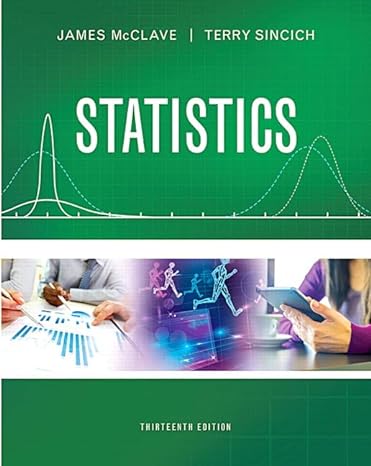Expert testimony in homicide trials of battered women. An article published in the Duke Journal of Gender
Question:
Expert testimony in homicide trials of battered women.
An article published in the Duke Journal of Gender Law &
Policy (Summer 2003) examined the impact of expert testimony on the outcome of homicide trials that involve battered woman syndrome. On the basis of data collected on individual juror votes from past trials, the article reported that “when expert testimony was present, women jurors were more likely than men to change a verdict from not guilty to guilty after deliberations.” Assume that when no expert testimony was present, male jurors were more likely than women to change a verdict from not guilty to guilty after deliberations. These results were obtained from a multiple-regression model for likelihood of changing a verdict from not guilty to guilty after deliberations, y, as a function of juror gender (male or female) and expert testimony
(yes or no). Give the model for E(y) that hypothesizes the relationships reported in the article. Illustrate the model with a sketch.
Step by Step Answer:

Statistics Plus New Mylab Statistics With Pearson Etext Access Card Package
ISBN: 978-0134090436
13th Edition
Authors: James Mcclave ,Terry Sincich




